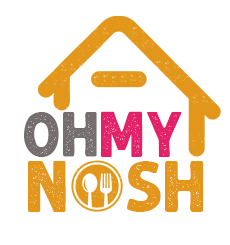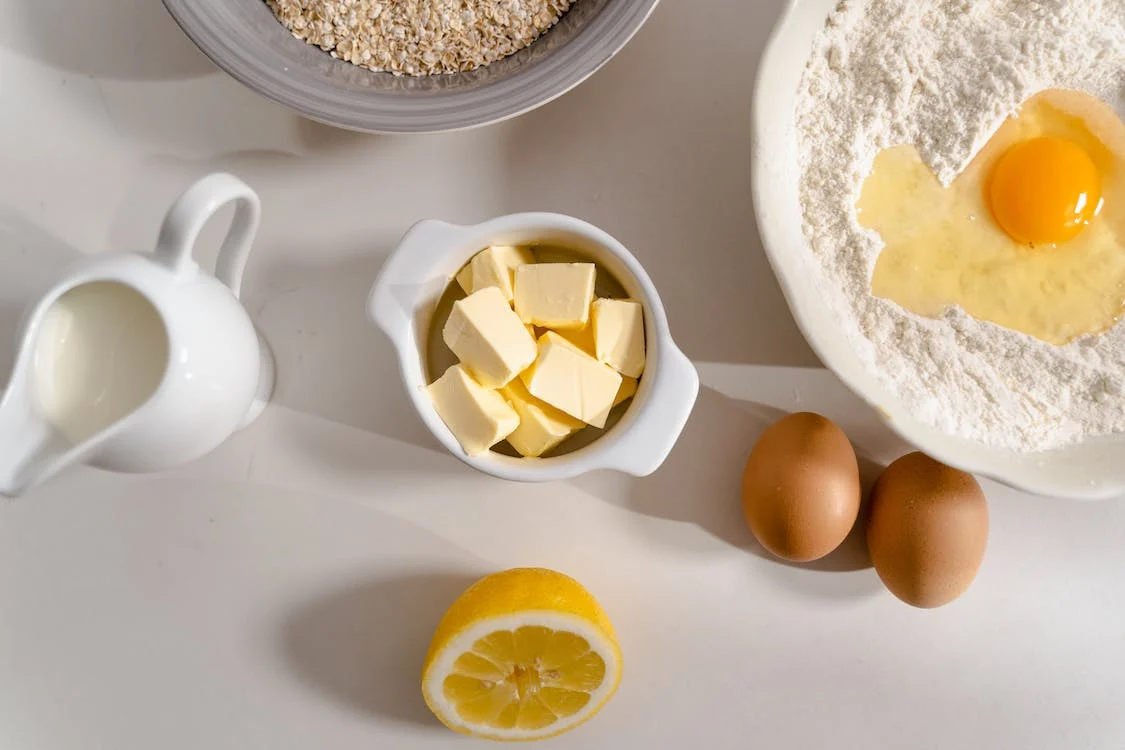Butter can add richness to any cuisine. But have you ever used goat butter? Yes, we said goat butter! It’s simply a block of butter that’s made with goat’s milk. However, it doesn’t have a lot of cream on its top and requires several quartzes of milk for completion. Goat butter also tastes different than cow milk. Based on the procedures of the producer and the type of cream used, the taste can vary from block to block, but it usually tends to be gamier.
Top 11 Benefits of Goat Butter
Goat butter has several benefits to offer. We look at the most notable ones below:
1. Has a Tangy Taste
When you consume goat butter the first time, you’ll find that it has a musky, goat milk-like taste. Add it to vegetables, however, and it’ll return with a sweet, tangy flavor. We recommend pairing it with radishes. But if you plan to serve it as a standalone item, make sure to put some sea salt on its side (for added flavor).
2. Is Good for the Skin
The fatty acids found in goat butter are beneficial for both your external and internal health. They come with the ability to moisturize the skin as well as offer a high level of vitamin A. In addition, the milk is derived from a pH level similar to humans, which means it can be absorbed by the gut with no irritation. The fact that goat butter triggers lactic acid production is also good for brightening the complexion and eliminating dead skin cells. It’s as good as coconut butter if you make a comparison.
3. Light in the Mouth
Compared to its cow variant, goat butter is lighter in taste. Its unique fat structure ensures the cream that’s produced during processing remains light in the mouth. Although you’ll get a cheesy taste when you add goat butter to your recipes, you’ll also experience light freshness in your mouth.
4. Good Calories
You’ll consume around 80 calories if you add 2 spoons of goat butter to a recipe. The good news is that goat butter doesn’t offer empty calories. Instead, it has nutritional properties that will improve your digestive processes. Also, the butter is naturally low in cholesterol, so consuming it over other types of butter may improve your overall health.
5. May Improve Heart Health
Good butter is an excellent source of magnesium, which is known to aid the heart’s health. Adequate intake of magnesium helps prevent the development of blood clots and maintain a regular heartbeat. Goat butter is known to contain higher levels of this nutrient than soy and cow butter. Plus, magnesium is also known to combine well with Vitamin D, which is another vital component for improving the health of the heart.
6. Anti-Inflammatory
Butyrate, the short-chain fatty acid present in goat butter, generates good bacteria in the stomach lining when mixed with fiber. This is one of the key reasons why fiber is good for health. But don’t disregard butyrate; it’s another solid nutrient that has a powerful anti-inflammatory effect on the colon.
7. Has Healing Properties
Goat butter offers similar healing properties as olive oil, and the regular consumption of this food may help fight acne, eczema, and anemia. It can also improve the reproduction of hemoglobin, which is positive news for people suffering from osteoporosis. Moreover, the high levels of selenium and zinc present in goat butter are good for battling neurogenerative diseases such as Alzheimer’s disease.
8. Contains fewer Allergens
Cow’s butter is derived from milk that has more than 20 allergens. Those allergens can contribute to childhood allergies that even persist during the adult age. Consistent development of these allergens can result in allergic reactions like hives, abdominal cramps, and inflammation. Goat butter doesn’t have the protein required to produce such reactions. Also, most of the protein is taken out during the butter-making process. Even if some is left, it’s A2 casein, which is a protein type that doesn’t produce inflammation in the body.
9. Versatile in Nature
Even though goat butter has a lot of differences from cow butter, it can be used similarly. You can mix it in cookie dough, put it with vegetables in a hot pan, or spread it on a slice of bread. You can even look for the recipes for cow butter and switch the primary ingredient with goat butter for a quick boost of flavor and health. Nowadays, cows are being injected with growth hormones to meet the world’s demand for milk. The butter, therefore, is made from mass-produced milk. Goat butter and milk, on the other hand, are currently safe from such toxic practices.
10. Melts Quickly
Another benefit of goat butter is that it melts really fast! In fact, it melts faster than most types of butter you’ll find in the market. This means it’s ideal for spreading on savory dishes. Plus, you’ll need to spend less time waiting for the butter to melt since it only requires a couple of minutes to reach that state. Goat butter is also whiter than cow butter since it rarely has ingredients that render a yellow texture. This also allows it to retain its original texture, which is quite similar to goat milk (you may even find companies selling goat butter with an earthy aroma of milk).
11. Great for Baking
Compared to standard butter, goat butter is an excellent choice for baking, thanks to its low melting point. This property of goat butter allows for a more tender and sandy texture in baked food items.
In addition, goat butter allows for a more effective coating of proteins in the flour, resulting in less hydration and gluten development. This helps make crusts of pies flaky and shortbread crumbly.
Goat butter is also a good option for making cookies since it gives the cookies a delicate texture and flavor.
Differences between Standard Butter and Goat Butter
You may wonder what the differences are between standard butter and goat butter. There are two most prominent differences that affect how goat butter is used:
- Taste
The process of making butter tends to be similar across the board despite what animal’s milk is being used. This means that the primary factor determining the flavor of butter is the source of the milk being used. Still, the process may also affect the taste of the end product.
Goat butter has more flavor than standard butter. One can describe the taste of goat butter earthy, tangy, and strong yet not as polarized as products like goat cheese.
- Color
One of the first things you will notice when comparing goat butter to cow butter is the color difference. Goat butter is very white, whereas cow butter tends to be on the yellow side. There is an important reason behind this difference. Goats process beta-carotene differently compared to cows, resulting in butter being white. This property of goat butter makes it quite photogenic.
Downsides of Goat Butter
Goat butter is not perfect. It has its downsides that must be taken into consideration when using it. Some of these downsides of goat butter are given below.
- Goat Butter is not Completely Lactose-Free
Yes, goat butter indeed has lower lactose content, but this in no way means that it is entirely lactose-free. That being said, it can be easier to digest for some individuals compared to standard butter.
So, if you are lactose intolerant, you should avoid goat butter and opt for other lactose-free alternatives.
- Goat Butter Tends to be More Expensive
More goats are required to produce a consistent and reliable amount of milk per day since they produce less milk than cows. Goat milk also contains less butterfat which means it yields less butter than cow milk.
All of this results in a higher price of goat butter.
- Goat Butter Melts Quickly
As mentioned before, goat butter has a lower melting point compared to most standard butter types. Although a lower melting point can be a good thing, it can also cause some problems. The butter may get too soft in the dough or cream faster than you are used to, resulting in overmixing.
Therefore, you need to be careful when using goat butter to avoid making mistakes. So, with proper care, you can use it in any recipe you want.
Conclusion
As you can see, goat butter is versatile and has a range of benefits to offer. With a taste as great as health benefits, goat butter covers both ends of the spectrum, offering a rich taste of natural goodness and a variety of heart and digestion-enhancing benefits. Make sure to purchase goat butter from a reliable producer or look up a YouTube video to learn how to make your own goat butter at home. We promise you’ll be glad that you added it to your arsenal of butter stocked in your kitchen.

